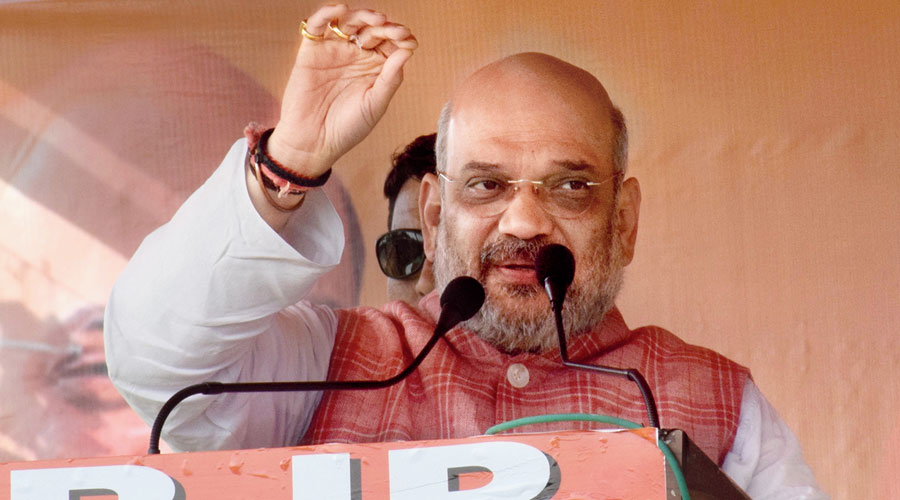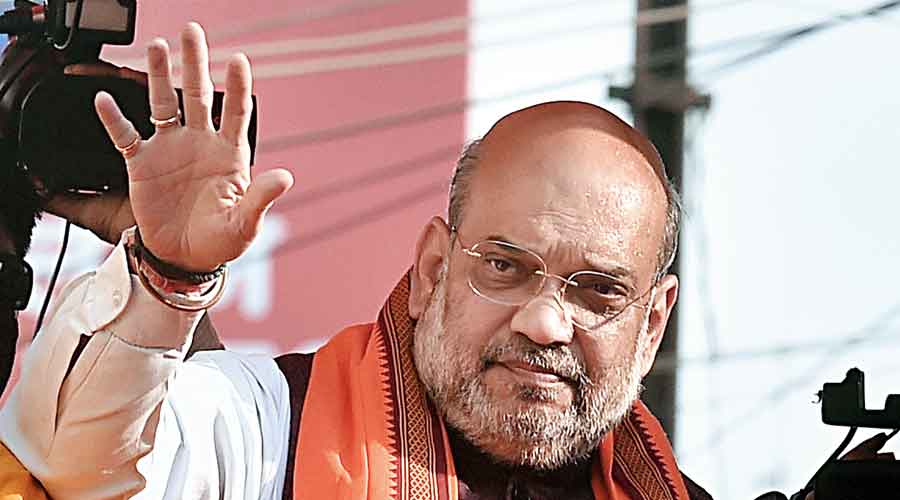Union home minister Amit Shah’s remarks putting down Bangladesh have riled Dhaka again, with the neighbouring country’s foreign minister A.K. Abdul Momen describing such statements as unacceptable and potentially harmful to the bilateral relationship.
Momen was referring to Shah’s interview with the online edition of Anandabazar Patrika, in which the Indian home minister said that development had not reached the grassroots in the border areas of Bangladesh and, therefore, the poor there still did not get food.
“That is why (it’s one of the reasons) infiltration is happening. And the infiltrators are not staying only in Bengal; they are spreading to various states, even Jammu and Kashmir,” Shah had said.
Asked for a reaction by Prothom Alo, a newspaper based in Bangladesh, Momen was quoted as saying that such remarks were unacceptable and could create misunderstandings, especially when relations between Bangladesh and India were so deep.
“There are many wise people in the world who do not see even after looking, and do not understand even after knowing. But if he (Shah) has said something like that, I would say his knowledge about Bangladesh is very limited. No one dies of hunger in our country now. There’s no monga (seasonal poverty and hunger in the northern districts of Bangladesh), either,” Momen said.
Momen seized the opportunity to drive home the fact that Bangladesh was ahead of India on many social indices, particularly picking on the Narendra Modi government’s pet project of building toilets. While almost 90 per cent of people in Bangladesh use fairly good latrines, over 50 per cent of Indians do not have proper toilets, he said.
Urging Indian ministers to expand their knowledge, Momen said while there was a shortage of jobs for educated people in Bangladesh, it was not so for the less educated. Besides, over 100,000 Indians work in Bangladesh, he said, emphasising that Bangladeshis do not need to go to India.
In the latest edition of the Global Hunger Index — released in October last year --- India was ranked 94 among 107 countries, way below Bangladesh and Pakistan which were at 75 and 88, respectively.
Shah’s rhetoric against Bangladesh -- including his reference to Bangladeshis as termites in the past -- has often upset Dhaka. Prime Minister Narendra Modi’s visit to the country last month to mark the 50th anniversary of the liberation of Bangladesh was marred by violent protests that left 10 dead. This was a first for an Indian Premier in a country that acknowledges India’s role in its emergence as an independent nation.
In November 2019, the former Bangladeshi high commissioner to India, Syed Muazzam Ali, had said at a media interaction that the “people of Bangladesh would prefer to swim the Mediterranean and go to Italy than come to India”. His contention was that India does not have much of a pull factor for Bangladeshis as is often projected here, particularly since the difference in the per capita incomes of the two countries is narrowing at a trot.
At the time he said this, the Asian Development Bank had just updated its Asian Development Outlook to revise Bangladesh’s GDP growth for 2019 upwards from 8 per cent to 8.1 per cent, and downwards for India from 7.2 per cent to 6.5 per cent. Also, the growth forecast for Bangladesh was retained at 8 per cent while India’s was downgraded from 7.3 per cent to 7.2 per cent.
In December 2019, Momen had cancelled a visit to India after openly questioning India’s decision to include Bangladesh in the list of countries where minorities are being persecuted. This was in reference to the Citizenship (Amendment) Act, which fast-tracks citizenship for minorities from Pakistan, Afghanistan and Bangladesh.
Last year, the IMF’s Economic Outlook said Bangladesh had overtaken India in GDP per capita, and that the per capita income of an average Bangladeshi would be more than that of an average Indian.











